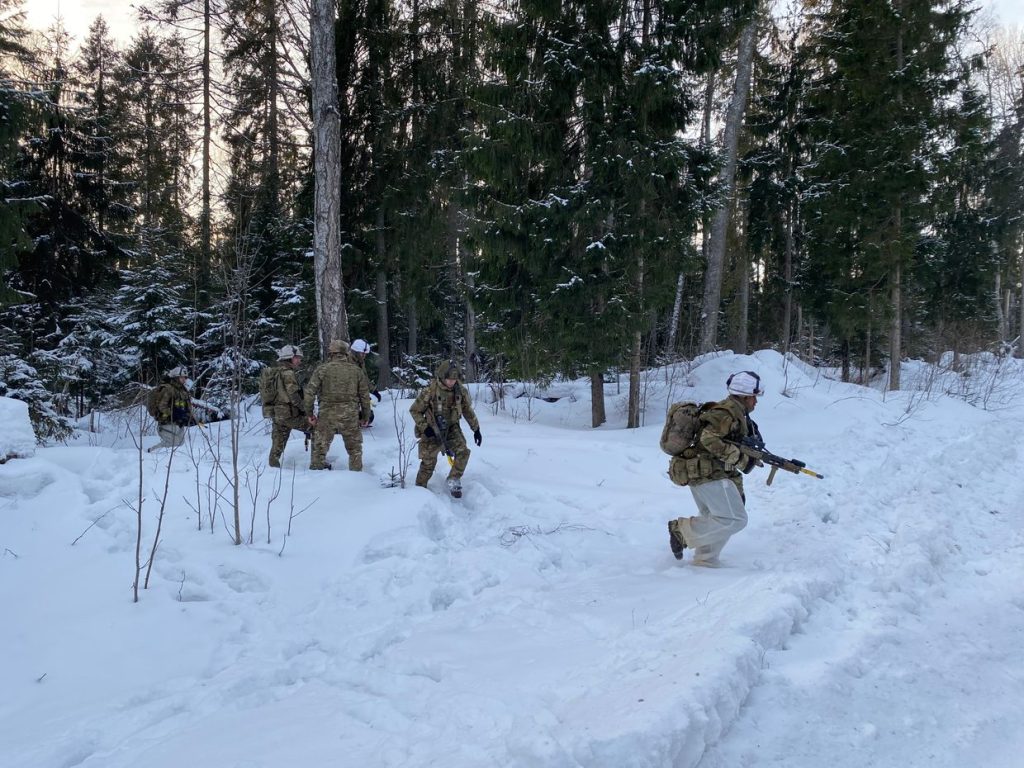Estonia is seriously discussing the potential deployment of troops in non-combat roles in Ukraine, according to Madis Roll, the national security advisor to the president. The discussions come after General Martin Herem of Estonia’s Armed Forces mentioned the possibility of sending soldiers to western Ukraine. While Estonia would prefer to send troops as part of a NATO-wide mission, a smaller coalition is not ruled out. The specific non-combat duties that Estonian troops could potentially perform have not been specified. The idea of Western troops being sent to Ukraine has been debated since French President Macron suggested that Western military presence in Ukraine is a possibility in the future. The US and European allies, as well as NATO Secretary-General Stoltenberg, have distanced themselves from Macron’s statement, but Macron has reiterated his willingness to send French troops if needed.
The situation in Ukraine has worsened with Russia’s new Kharkiv offensive, pushing the town of Vovchansk to the brink of annihilation. Glide bombs, more powerful than regular artillery shells, arrive in groups of three, causing devastation upon impact. The explosions shake the ground and have the potential to cause widespread destruction. The town of Vovchansk is facing a dire situation as the conflict intensifies, with residents at risk and infrastructure being targeted by the ongoing violence. Russia’s actions in Ukraine have raised concerns internationally and led to calls for support for the Ukrainian people in the face of aggression.
The potential deployment of Estonian troops in Ukraine highlights the willingness of some Western countries to support Ukraine in its conflict with Russia. The discussions surrounding this deployment show a commitment to assisting Ukraine in some capacity, whether through non-combat roles or as part of a larger NATO mission. The situation in Ukraine remains volatile, with ongoing violence and instability posing a threat to the region. The international community must continue to monitor the situation closely and provide assistance to Ukraine to ensure the protection of its citizens and the preservation of its sovereignty.
The comments from Estonian officials regarding the deployment of troops in Ukraine underscore the complexities of the conflict and the differing opinions within the international community on how to respond. While some countries, like France, have expressed willingness to consider sending troops to Ukraine, others have been more cautious in their approach. The debates around military intervention in Ukraine highlight the challenges of navigating international relations and the need for a coordinated response to the crisis. As the situation continues to evolve, it is crucial for countries to work together to address the conflict in Ukraine and support efforts to maintain peace and stability in the region.
The conflict in Ukraine is a pressing issue that requires the attention and support of the international community. The ongoing violence and aggression from Russia have led to a humanitarian crisis in Ukraine, with civilians bearing the brunt of the conflict. The potential deployment of Estonian troops in non-combat roles reflects a commitment to assisting Ukraine and standing up to Russian aggression. As the situation in Ukraine continues to unfold, it is essential for countries to work together to address the root causes of the conflict and support efforts for peace and stability in the region. By supporting independent journalism and staying informed about developments in Ukraine, individuals can contribute to the global effort to protect the rights and safety of the Ukrainian people.


